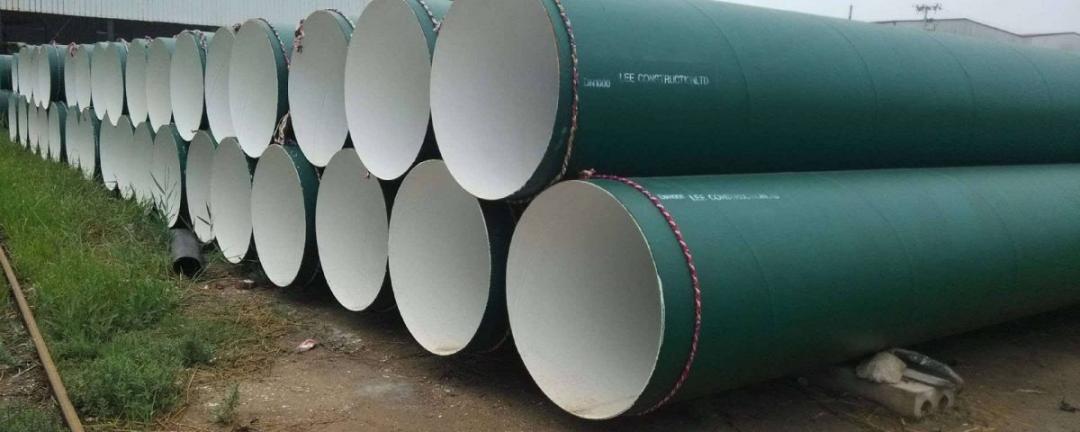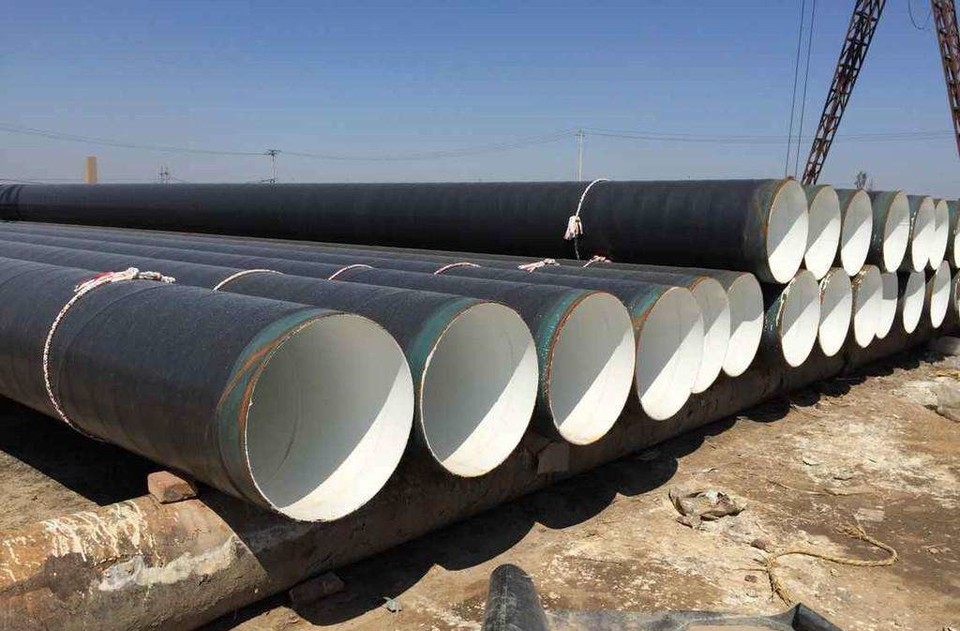Shielded Steel: The Power of Epoxy-Coated Pipes
Epoxy-coated steel pipes play a crucial role across numerous industries, notably in water treatment systems. These pipes are prized for their durability and corrosion resistance, which is enhanced by a protective layer of epoxy coating. The flexibility of customization in terms of material properties and color options allows for tailored solutions that meet specific industry requirements. Additionally, these pipes are favored for their competitive pricing and the ability to meet tight delivery schedules, making them a practical choice for projects that demand both quality and efficiency. This adaptability and economic advantage underscore the importance of epoxy-coated pipes in maintaining robust and reliable industrial operations.
Understanding Epoxy-Coated Pipes
What are Epoxy-Coated Pipes?
Epoxy-coated pipes are steel conduits that have been treated with a protective epoxy coating. This coating is applied to both the interior and exterior of the pipes to shield them from environmental damage and chemical corrosion.
Composition and Properties of Epoxy Coatings
These coatings consist of epoxy resins and hardening agents. Once cured, they form a robust, protective film that is highly resistant to chemical attack, physical wear, and thermal stress.
Benefits of Epoxy-Coated Pipes
- Corrosion Resistance: The epoxy layer acts as a barrier against corrosive agents, significantly extending the pipe's operational life.
- Durability: Epoxy coatings enhance the pipe's ability to withstand mechanical and thermal stress, reducing the likelihood of failures and leaks.
- Enhanced Flow Efficiency: The smooth surface of the coated pipes minimizes resistance, ensuring optimal flow rates and reducing energy costs.
- Cost-effectiveness: The longevity and reduced maintenance needs of epoxy-coated pipes make them a financially viable option over the long term.
- Environmental Friendliness: By preventing leaks and spills, these pipes help protect the environment and meet regulatory compliance for safety.
Applications of Epoxy-Coated Pipes
Oil and Gas Industry
Used extensively for both onshore and offshore pipelines, epoxy-coated pipes are crucial in minimizing corrosion-related risks in the oil and gas industry.
Water and Wastewater Management
These pipes are key components in modern water treatment and sewage systems, providing durability and ensuring that water quality is maintained.
Chemical Processing Plants
In environments where chemical exposure is constant, epoxy-coated pipes are essential for safe and reliable transport of processing materials.
Construction and Infrastructure
Their resistance to environmental factors makes epoxy-coated pipes ideal for underground piping systems and infrastructure projects.
Other Industrial Applications
From agriculture to manufacturing, these pipes are versatile tools that improve safety and operational efficiency across various sectors.

Manufacturing Process of Epoxy-Coated Pipes
Surface Preparation
The steel pipes are cleaned and sandblasted to remove any contaminants that might impair the adhesion of the epoxy coating.
Application of Epoxy Coating
The epoxy is applied through spraying or rolling to ensure a uniform coat over the entire surface of the pipe. Multiple layers may be added to achieve the desired thickness and protection level.
Curing Process
The coated pipes are heated to a specific temperature to cure the epoxy, a process that solidifies the coating and bonds it securely to the pipe.
Quality Control Measures
Throughout the manufacturing process, various quality control tests are conducted, including adhesion tests, hardness tests, and visual inspections, to ensure that the pipes meet all industry standards and performance expectations.
Epoxy-coated pipes are a critical advancement in piping technology, offering enhanced protection against corrosion, extended lifespan, and improved performance in harsh or demanding environments. Their broad range of applications highlights their importance in modern industry, where they contribute significantly to operational safety and efficiency.
Cangzhou Shenlong Epoxy Coated Steel Pipe Advantage
Competitive Price and Fast Delivery
Cangzhou Shenlong offers competitively priced epoxy-coated steel pipes without compromising on quality. The company's efficient production processes and logistics ensure fast delivery times, meeting the urgent demands of various industries.
Standard Complied Quality and Comprehensive Certifications
The company adheres strictly to international standards, ensuring high-quality epoxy-coated steel pipes suitable for diverse applications. Cangzhou Shenlong provides comprehensive documentation to support this quality, including EN10204 3.1 Certificates, ISO certificates, and detailed product catalogs. Additionally, a full company profile, quality manual, ITP (Inspection Test Plan), and past project lists are readily available to customers, demonstrating the company's commitment to transparency and quality assurance.
Rigorous Quality Control and Exceptional After-Sale Service
Cangzhou Shenlong implements a stringent quality control process that includes multiple testing methods such as hydrostatic, ultrasonic, eddy current, magnetic particle, impact, and hardness testing. This rigorous inspection ensures that all pipes meet the highest standards of durability and performance. Moreover, the company's considerate after-sale service provides ongoing support to clients, addressing any concerns post-purchase to ensure complete customer satisfaction.
Challenges and Limitations
Compatibility Issues with Certain Chemicals
While epoxy-coated pipes are resistant to many chemicals, there are exceptions. Certain solvents and acids can compromise the integrity of the epoxy coating, leading to degradation or failure. Identifying and understanding these compatibility issues is crucial for ensuring the longevity and safety of the pipes in chemical applications.
Vulnerability to Mechanical Damage
Epoxy coatings, though durable, are susceptible to mechanical damage such as scratches or impacts. Such damages can expose the underlying metal to corrosive elements, potentially leading to rust and corrosion. Proper handling and protective measures are essential during transportation and installation.
Proper Installation and Maintenance Requirements
For optimal performance, epoxy-coated pipes must be installed correctly, which often requires specialized knowledge and tools. Moreover, regular maintenance is necessary to ensure the coating remains intact and effective over time. Failure to adhere to these requirements can diminish the pipe's efficacy and lifespan.

Future Trends and Innovations
Advancements in Epoxy Coating Technology
Research and development are continuously pushing the boundaries of epoxy technology, enhancing its chemical resistance and mechanical properties. Future coatings are expected to offer even greater durability and adaptability, potentially incorporating self-healing properties that repair minor scratches automatically.
Integration of Smart Monitoring Systems
The future of epoxy-coated pipes includes the integration of smart sensors that can monitor the condition of the pipe in real-time. This technology will alert operators to issues such as coating degradation or the onset of corrosion, enabling preemptive maintenance and significantly reducing downtime.
Potential Applications in Emerging Industries
As new industries emerge and existing ones evolve, the demand for specialized piping solutions grows. Epoxy-coated pipes are expected to find new applications in sectors such as renewable energy, where they could be used in biofuel production or geothermal installations.
Environmental Impact and Sustainability
Comparison with Traditional Pipe Materials
Epoxy-coated steel pipes offer significant environmental benefits over traditional pipe materials like plain steel or concrete. Their longer lifespan and reduced maintenance requirements contribute to less frequent replacement and lower resource consumption.
Recyclability and Disposal Considerations
While steel is highly recyclable, the presence of epoxy coating complicates the recycling process. However, advancements in recycling technologies may soon allow for the easier separation of materials, enhancing the sustainability of epoxy-coated pipes.
Environmental Certifications and Regulations
Epoxy-coated pipes must comply with various environmental certifications and regulations, which aim to ensure that manufacturing processes and materials are safe for the environment. Compliance with these standards not only helps protect natural ecosystems but also builds consumer trust and business credibility in global markets.
Closing Words
Epoxy-coated pipes represent a significant technological advancement in industrial piping systems, offering unparalleled protection against corrosion, enhanced durability, and improved operational efficiency. Their adaptability across various industries—from oil and gas to water treatment—underscores their importance in modern infrastructure. As technology progresses, these pipes are set to become even more effective with smarter monitoring systems and advanced materials. Despite some challenges in compatibility and mechanical sensitivity, the future of epoxy-coated pipes looks promising, contributing not only to the robustness of industrial operations but also to environmental sustainability. Their continued development and integration into new sectors will undoubtedly enhance their utility and reaffirm their crucial role in global industries.






